hossblur
Long Time Member
- Messages
- 10,532
"Utah DWR reports hunting permit fraud, seize illegally killed animals" https://www.fox13now.com/news/local...raud-seize-illegally-killed-animals?_amp=true
People would still cheat residency to increase their oddsNo point system, no issue.
Money talks !I mean points are one thing but giving Wade Lemon’s guys a pass for the Nebo sheep is another. Come on DNR get with it and go after Wade stop going after someone paying more for non-resident points…
Response of the week right there.!I wonder what would happen if a Nonresident shot a bighorn sheep in the wrong area? That would be something.
This isn’t even close to accurate. Apply for somewhere other than San Juan, Henry’s and oak creeks. Pick up a new weapon type and learn to hunt with that. Plenty of great hunts to be had, multiple times in your life if you are willing to step out of your comfort zone and pursue opportunities over antler sizeUtah needs to rename the once in a lifetime tags to once in 2 life time tags, or Not a chance in hell tags. I wish they would let my kids have my points when I die so at least I could get something out of all of these points I am accumulating. I guess that's why fraud is so appealing to some people , Its actually cheaper and faster and you will get to hunt it in this lifetime!
Once in a lifetime hunts ! Not Limited Entry! And its very true statement. With the continued point creep in all of Utah's units and across all species, your grandkids will never hunt!This isn’t even close to accurate. Apply for somewhere other than San Juan, Henry’s and oak creeks. Pick up a new weapon type and learn to hunt with that. Plenty of great hunts to be had, multiple times in your life if you are willing to step out of your comfort zone and pursue opportunities over antler size
You keep on believing that. Spread the word too! The less applicants the betterOnce in a lifetime hunts ! Not Limited Entry! And its very true statement. With the continued point creep in all of Utah's units and across all species, your grandkids will never hunt!
This isn’t even close to accurate. Apply for somewhere other than San Juan, Henry’s and oak creeks. Pick up a new weapon type and learn to hunt with that. Plenty of great hunts to be had, multiple times in your life if you are willing to step out of your comfort zone and pursue opportunities over antler size
When TF did I say only new guys can do that? Quote me on it. I’d love to see where I said thatSo gray hairs can't do the same?
Only new dudes need to "pick up a new weapon type?"
When did gray hairs become beyond reproach?
All of those that apply and draw then died before opener.... who fill those tags?
Jester
You're getting tricked by the system. It's similar to what they do on 'Let's Make A Deal' and 'Deal Or No Deal' as well as in Vegas. It's why Vegas shows us the historical results of Roulette right above the wheel. If you see that the last ten numbers were red, you're likely to think it's about time to hit on black. In reality, the next roll has the exact same odds of being red again.I’m betting most of you didn’t do well in math or you don’t understand the point system.
The only applicant whose chances are not improved in the point system, is the first time applicant.
Without a point system everyone becomes a first time applicant every year! Having the poorest odds you will face. Granted everyone has the same “chance” but it remains your worst chance.
You couldn't be more wrong. If there are 1000 people drawing at 10 tags and one guy has 1000 ping pong balls and the other 999 have one each, the odds are not the same. Applicants is the bullshit they feed you to get new people to the bottom of the pyramid. Tags divided by applicants are the odds you typically see. The actual odds are tags divided by points. I understand that this varies by state.You're getting tricked by the system. It's similar to what they do on 'Let's Make A Deal' and 'Deal Or No Deal' as well as in Vegas. It's why Vegas shows us the historical results of Roulette right above the wheel. If you see that the last ten numbers were red, you're likely to think it's about time to hit on black. In reality, the next roll has the exact same odds of being red again.
If 1,000 people apply for 10 tags, the overall odds will always by 1%. There will always be 10 Successful emails and 990 Unsuccessful emails. It doesn't matter if there are 1,000 ping pong balls in the barrel or 100,000 ping pong balls in the barrel.
Point systems don't affect the odds, all they do is try and level out the chance that one person will draw two tags before somebody else draws one. But they don't actually change the overall odds.
The only way to affect the actual odds is to change either applicants or tags. Ultimately it's a very simple math equation. I'll say it again...
THE ONLY REAL WAY TO CHANGE ODDS OF DRAWING IS TO CHANGE EITHER APPLICANTS OR TAGS! NOTHING ELSE MATTERS!
PS... On Let's Make A Deal, it is mathematically better to always switch doors!
Read again what I said...You couldn't be more wrong. If there are 1000 people drawing at 10 tags and one guy has 1000 ping pong balls and the other 999 have one each, the odds are not the same. Applicants is the bullshit they feed you to get new people to the bottom of the pyramid. Tags divided by applicants are the odds you typically see. The actual odds are tags divided by points. I understand that this varies by state.
If 1,000 people apply for 10 tags, the overall odds will always by 1%
Read again what I said...
The reason you're wrong is because once the guy with 1,000 balls draws his tag, he's removed from the equation (his odds, each time they draw the ball are ~50.02%, though they change slightly with every removed name). It is highly likely that he'll draw within the first few attempts, but not guaranteed. Once he's drawn, any subsequent draws of his name are discarded and drawn again. That leaves the other 999 guys competing for the remaining nine tags (~0.9%).
If you imagine a giant auditorium with all 1,000 guys sitting inside hoping to get lucky it makes it easier to understand.
At the end of the night, no matter how many ping pong balls are in the barrel, there will ALWAYS be ten lucky hunters and 990 unlucky hunters.
Because nobody can have more than one tag, they always average out to 1:100. The odds of any individual can be affected, but the OVERALL odds can't be altered without changing the numerator or the denominator.
__________
However, when it comes to point systems you have to take your analogy a step further though. What if you give everybody 1,000 ping pong balls? Then everybody has equal odds again. That's more like a point system.
I may be sitting on 10 elk points in Wyoming, but when 1,000 other guys also have 10 elk points, and another 1,000 have 11 elk points, and another 1,000 have nine elk points... my odds aren't that much different than if we all had one ping pong ball in the barrel. But we have to pay the money for the point because we don't want to be the guy with no elk points; then our individual odds would be negatively affected, even though the overall odds remain the same.
Eastman's explained what I said above in this way.Point systems don't affect the odds, all they do is try and level out the chance that one person will draw two tags before somebody else draws one. But they don't actually change the overall odds.
It's math brother. Drawings are designed using random numbers. In a point squared state you get one random number for the square of your points. In Montana, as an example, if a person has 10 points he gets 10 squared=100 plus 1 that everyone gets. So 101 random numbers assigned to him. If you have 2 points you get 5 random numbers.Eastman's explained what I said above in this way.
View attachment 68736
They refer to point systems as "equalizing" the odds, but correctly identify in the first sentence the controlling factors as tags and applicants. As I stated above, the impetus is to make it less likely that one person draws multiple tags before another person draws his first.... not to alter the overall draw odds.
I've made it as clear as I can. If you choose to still divide tags by points, that's totally fine with me.
Here's a math question for you... Think about the answer and I'll give it at the end of this post.It's math brother. Drawings are designed using random numbers. In a point squared state you get one random number for the square of your points. In Montana, as an example, if a person has 10 points he gets 10 squared=100 plus 1 that everyone gets. So 101 random numbers assigned to him. If you have 2 points you get 5 random numbers.
The guy with 10 points literally accounts for 101 random numbers. You actually have more draws in the hat. There's a reason most of the tags get drawn in the top third of point holders. Look at any one in a life units in any state, the distribution looks the same. As you'll notice the top third keeps getting higher every year. So when the guy with 10 points this year gets to 20 the odds of getting drawn with 30 will be close to the true odds and the guy with 20 is no closer than he was at 10. Actually he's likely further.
You apparently believe the 2nd-year applicant has a better chance of drawing a tag in MT-100-20 with 49,000 ping pong balls in the barrel than just 558, which is what it would be without a point system. This is not true. His probability is incrementally less to account for the increased probability of the guy with 20 points. It MUST be a zero-sum game. Odds can't be produced out of thin air simply by adding ping pong balls.The only applicant whose chances are not improved in the point system, is the first time applicant.
I agree that overall odds are tags divided by applicants. If I'm contemplating a multiyear investment in points why do I care about that? I care about my odds of drawing now and my odds of potentially drawing in the future. If I'm not in the top of the pool now my odds are significantly worse than the simple odds you're calculating and because the pool isn't rolling over my odds will never improve, I think we're in agreement on that. If I enter the Montana sheep pool this year my odds will never be as high as the overall odds you're calculating unless I outlive everyone in front of me. I.e. you're fore ever locked into your spot in the pyramid.Here's a math question for you... Think about the answer and I'll give it at the end of this post.
What is 1+2+3+4+5... (to infinity)?
___________
I share that well-known math problem to make a point about the trickery of math. There's also a reason that there are classes in college teaching Probability and Statistics. They can be confusing to people. Vegas was built on it.
_____________
I understand the squared system. You're focusing on one person and not seeing the forest for the trees. The guy with 10 points will have the exact same number of chances as everybody else with 10 points. He'll have a reduced probability of drawing compared to those with 15 points, he'll have an improved probability of drawing compared to somebody with 5 points, but the overall odds for the unit will remain the same. Tags divided by applicants. Nothing more, nothing less.
No matter how many ping pong balls go in the barrel, as long as everybody can only draw once the results will always end up with a specified number of happy people (# of tags) and a specified number of unhappy people (# of applicants, less those that drew tags).
____________
This conversation started with you saying...
You apparently believe the 2nd-year applicant has a better chance of drawing a tag in MT-100-20 with 49,000 ping pong balls in the barrel than just 558, which is what it would be without a point system. This is not true. His probability is incrementally less to account for the increased probability of the guy with 20 points. It MUST be a zero-sum game. Odds can't be produced out of thin air simply by adding ping pong balls.
I can see that you understand how point systems work structurally, but you must not understand how for every person whose individual probability of drawing increases, somebody else has their probability decrease proportionately. Resulting in the same overall odds as if there was no point system at all.
If you admit that point systems increase applicants, then you must be aware point systems DECREASE overall draw odds. Anybody that says point systems improve draw odds is simply wrong and is falling for a common gimmick utilized by game shows and casinos everywhere. Our brains are wired to fall for these tricks, unless somebody adheres to strict laws of probability, it is easy to fall for them.
Certainly you agree that even in a squared point system if there are 10 applicants for 10 tags, the odds of drawing are 100%. Regardless of how many points anybody has. Some could have 25 points and others could be in their first year, but actual odds are still 100%. Just apply that simple concept and you'll see that overall odds really are TAGS DIVIDED BY APPLICANTS.
__________
And for the answer...
1+2+3+4+5.... = -1/12
100% if you have 27 points.Grizzly
If you were to put in for a Cache Moose Tag in 2022 what are your odds?
It's not that simple. There is no 'winning' number among that 10, per se. The 10 chances simply generate 10 random numbers, every one of which could be higher than the number generated for the one-point holder. So in reality, the 10-point guy has a 100% chance to draw a low number among the 10 he gets, and the 1-point guy has 100% chance to draw his low number. They aren't competing again each other, as they are in the actual draw.Yes you only use your "best" result but the probability of your best result being better than the other guys is 10:1.
Grizzly
If you were to put in for a Cache Moose Tag in 2022 what are your odds?
I am making the assumption that if you had 26 points last year and didn't draw that 27 this year would get you a permit. It has nothing to do with anything other than you'd be top dog for the bonus round. No calculations. Sure 6 more guys with 27 points could show up. If they exist.
The actual odds are tags divided by points.
You're right it is an over simplification. If it truly is a random distribution with equal chance for each number to be higher or lower then assign the person with one point a random number. The person with 10 points then gets 10 numbers. Each of these 10 numbers should have equal probability of being higher or lower than the person with one number, since it is random. What is the probability that the person with 10 numbers doesn't draw a single random number lower than the person with 1?It's not that simple. There is no 'winning' number among that 10, per se. The 10 chances simply generate 10 random numbers, every one of which could be higher than the number generated for the one-point holder. So in reality, the 10-point guy has a 100% chance to draw a low number among the 10 he gets, and the 1-point guy has 100% chance to draw his low number. They aren't competing again each other, as they are in the actual draw.
Of course, none of the above applies to a separate 'bonus point' round where the most points count.
this is a different system. You're conflating a preference based system that guarantees tags to a bonus point system. Utah does both.Your Cache Moose example just proved my argument that what you said below is incorrect.
Last year, in the 25 point pool, there were 15 guys trying for the five remaining bonus tags left over after the guy with 26 points drew. There odds were 5/15 or 1/3. It is not 5/375 (15*25) which is what it would be if it was really figured as tags divided by points.
This will be the last time I say it, the true odds are always TAGS DIVIDED BY APPLICANTS. Everything else is an attempt to even out the probabilities, not to affect the overall odds.
Would need to know other factors related to the number generating system to try & figure such. The only sure thing that is 100% probability is they will both get a low number. And then...that number is still meaningless unless the two hunters compete in the draw for the same hunt.What is the probability that the person with 10 numbers doesn't draw a single random number lower than the person with 1?
Does every applicant that is brand new to the drawing start out at the 1 BP mark for the draw? Or do they start out with 0 BP their first year they apply?There are two different odds/probability issues at play. I'll speak to AZ because I'm not up to all the nuances of other states.
First, the number of points one has simply helps that person's odds/probability to draw a low number. With 1 BP, he gets one shot. With 10 BPs, he gets 10 numbers with only the lowest used in the draw.
Thus, the BPs have nothing to do with final draw as far as the odds; each applicant has only one point. So the odds are based on tags & applicants only.
No BPs per se, but they get the random number generated by the app. A 2nd year app after a no draw the first time gets two #s, etc. And that's the case regardless of the BP count; the app always generates a number apart from the BPs.Does every applicant that is brand new to the drawing start out at the 1 BP mark for the draw? Or do they start out with 0 BP their first year they apply?
Haha, saw David Wise drew either a paunsy or Henry’s(I’m thinking it was one of those 2 tbh I’ve never set foot in either one) archery tag this past year. Vortex made sure to send me an email with the video, it was his 2nd year applying. Looked like he shot a nice 150” buck?The best odds of drawing one of these coveted tags is clearly to get a TV show, or aYouTube channel or IG account going, get thousands of followers, and apply at the expo.
Those are your best odds, it's demonstrated every year.
With the “kill everything” mentality in this state, you could release 1,000 wild pigs in utah with an open season and they’d be wiped out in 3 years.The FIX is impossible. Limited resource with an exploding population means nothing will ever get better. Unless hogs take over the state.
With the “kill everything” mentality in this state, you could release 1,000 wild pigs in utah with an open season and they’d be wiped out in 3 years.
Factious post. Aimed at the trail camera and so called guide folks. The Texas boys can’t handle the situation, but in Utah we would grow 40” tusks. Damn hogzilla, we we grow multiple granders!!!With the “kill everything” mentality in this state, you could release 1,000 wild pigs in utah with an open season and they’d be wiped out in 3 years.
 Bearpaw Outfitters
Bearpaw Outfitters
Experience world class hunting for mule deer, elk, cougar, bear, turkey, moose, sheep and more.
 Wild West Outfitters
Wild West Outfitters
Hunt the big bulls, bucks, bear and cats in southern Utah. Your hunt of a lifetime awaits.
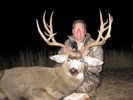 J & J Outfitters
J & J Outfitters
Offering quality fair-chase hunts for trophy mule deer, elk, shiras moose and mountain lions.
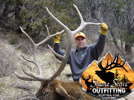 Shane Scott Outfitting
Shane Scott Outfitting
Quality trophy hunting in Utah. Offering FREE Utah drawing consultation. Great local guides.
 Utah Big Game Outfitters
Utah Big Game Outfitters
Specializing in bighorn sheep, mule deer, elk, mountain goat, lions, bears & antelope.
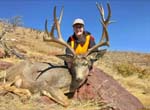 Apex Outfitters
Apex Outfitters
We offer experienced guides who hunt Elk, Mule Deer, Antelope, Sheep, Bison, Goats, Cougar, and Bear.
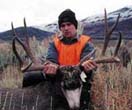 Urge 2 Hunt
Urge 2 Hunt
We offer high quality hunts on large private ranches around the state, with landowner vouchers.
 Allout Guiding & Outfitting
Allout Guiding & Outfitting
Offering high quality mule deer, elk, bear, cougar and bison hunts in the Book Cliffs and Henry Mtns.
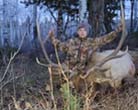 Lickity Split Outfitters
Lickity Split Outfitters
General season and LE fully guided hunts for mule deer, elk, moose, antelope, lion, turkey, bear and coyotes.
